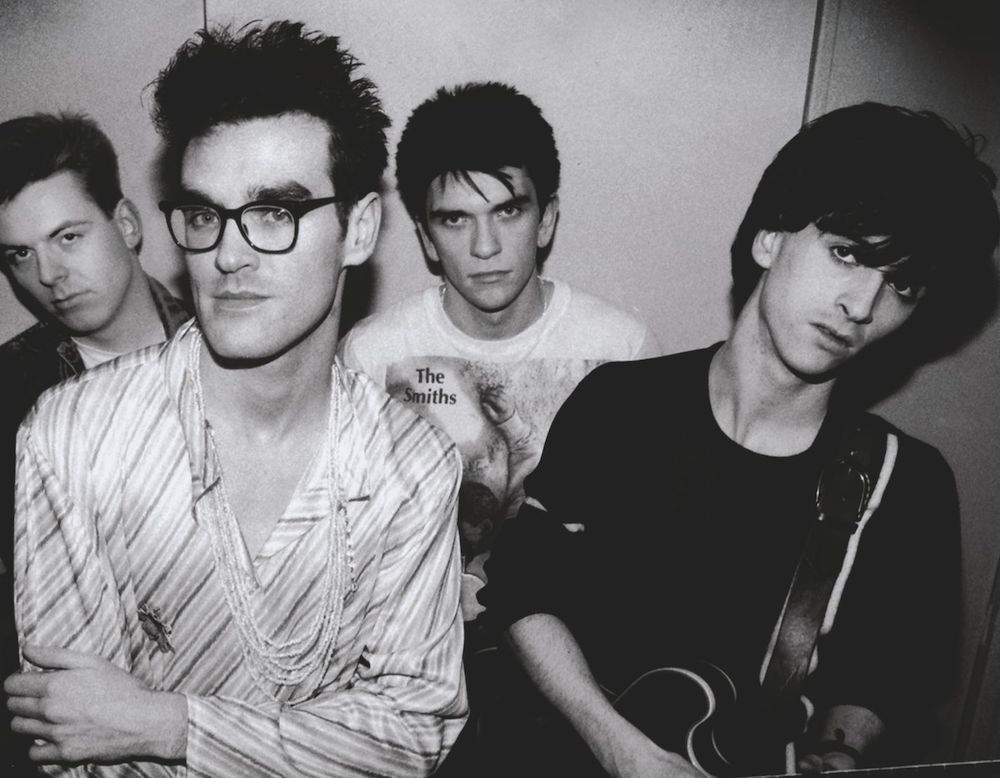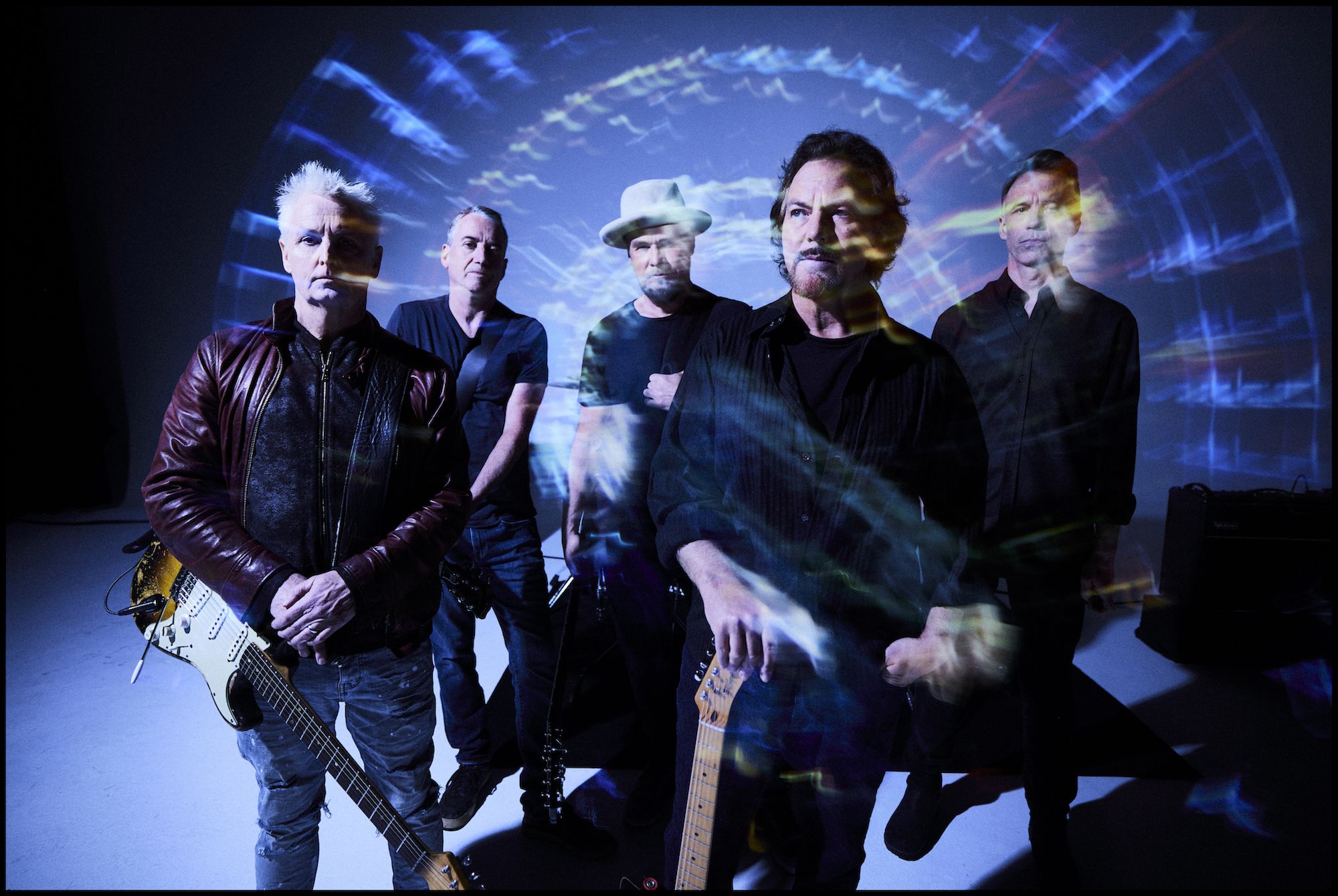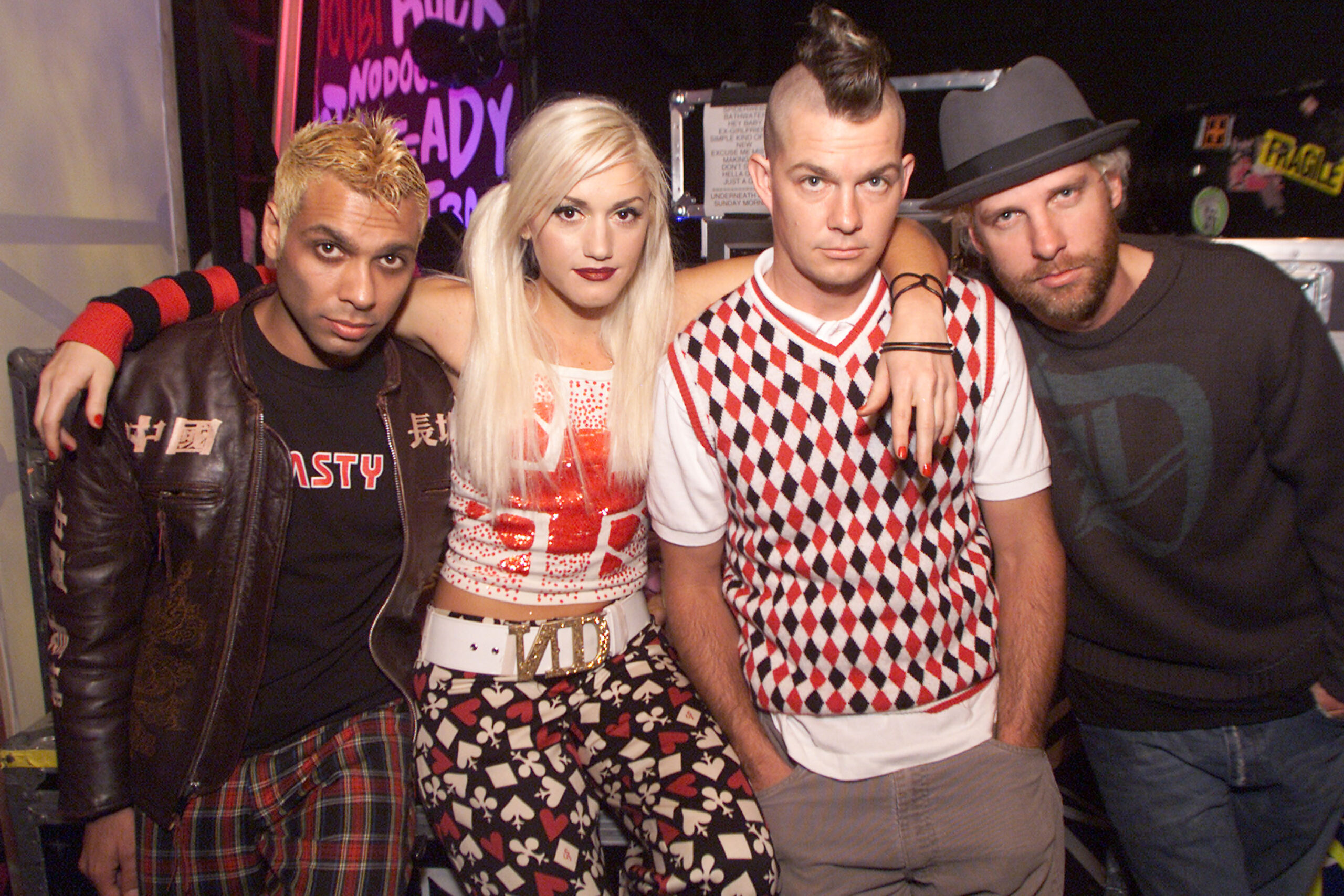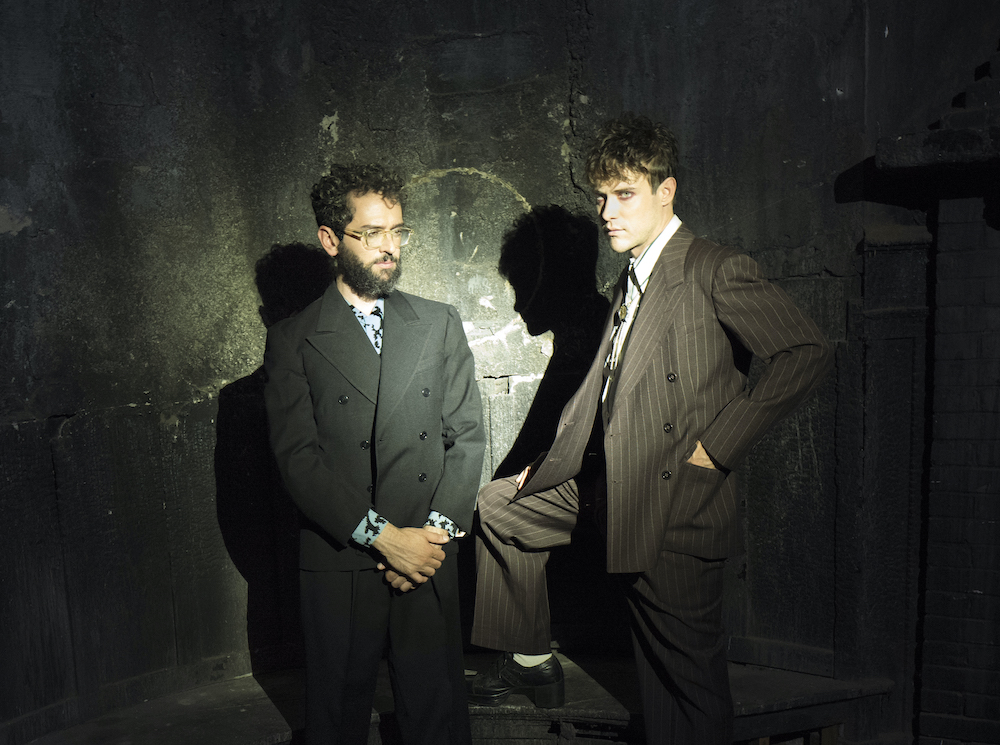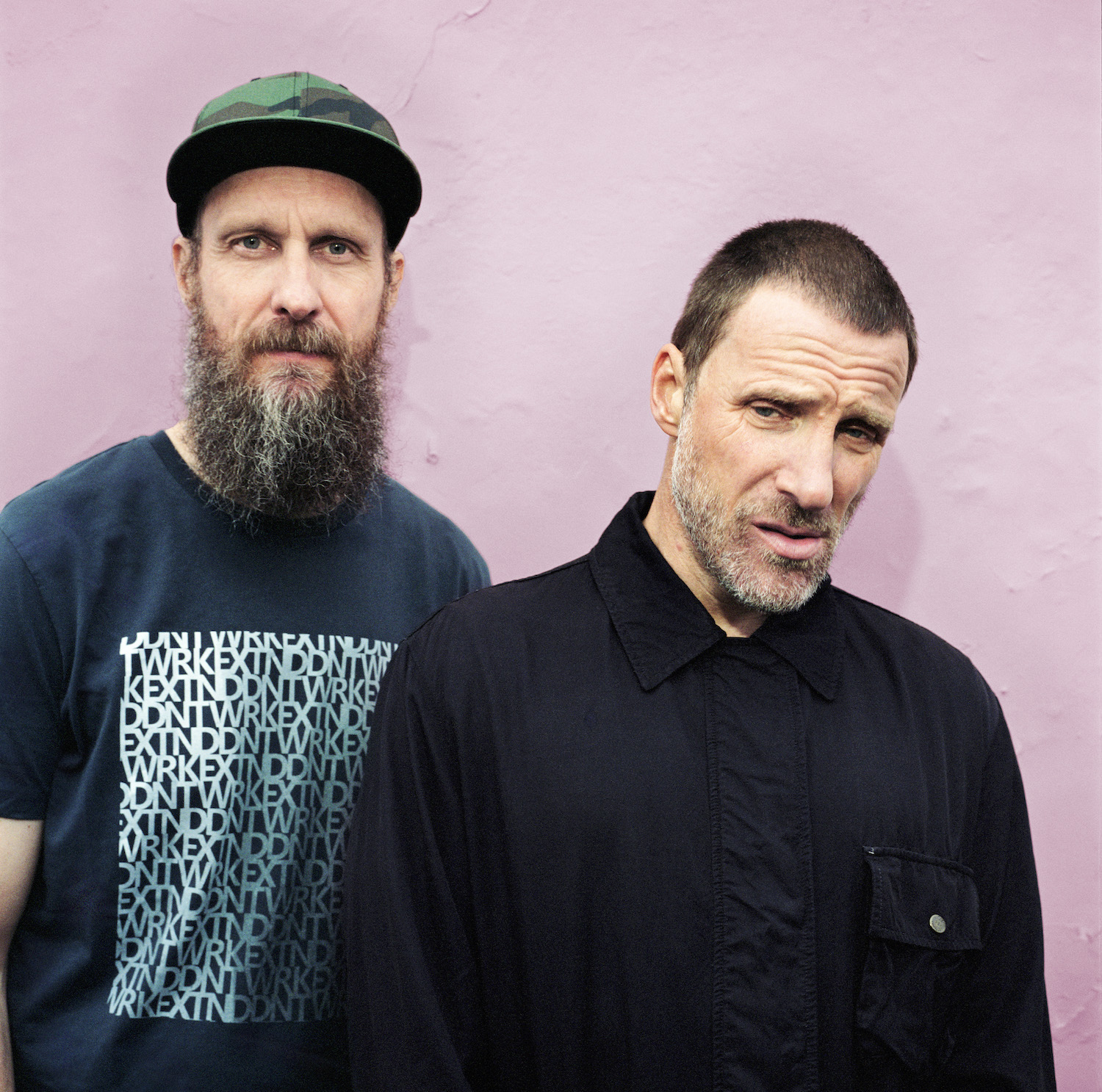Nobody knows self-sabotage better than Mitski. Luckily for her fans, she’s very bad at it. During the press cycle behind her excellent 2018 album Be The Cowboy, the indie singer-songwriter told the Guardian that she spent the last few years “waiting for everyone to just decide to hate me.” Mitski jumps from one genre to the next on each of her albums -- be it the jazz piano of 2012’s Lush, the theatrical drama of 2013’s Retired From Sad, New Career In Business, the lo-fi fuzz of 2014’s Bury Me At Makeout Creek, or the breakout indie rock of 2016’s Puberty 2 -- in hopes of shooting herself in the foot. The way she sees it, changing sounds is how she will shake off the fever dream that is her nonstop swell in popularity. “It’s almost like: ‘Well, before this goes to shit and you stop liking me, I’m going to do something that I know you won’t like, so that I’m the one who’s rejecting you,’” she said.
To be fair, Mitski was honest from the very beginning when it came to prioritizing her values and beliefs over fame and money. “Though I may never be free/ Fuck you and your money,” she screams on 2014’s “Drunk Walk Home.” And yet that just makes her ascent into the mainstream that much more rewarding. It’s rare and refreshing to see an artist land GQ features and New Yorker spreads the way Mitski has these past few years, especially considering she imbues so much of her identity in her songs.
As a Japanese-American artist, Mitski has faced her fair share of racism and sexism, both within the music industry and in real life. Perhaps that’s why her music feels like more than just an outlet for all the depression, rage, and fear that cloud her mind. From “Strawberry Blond” to “I Bet On Losing Dogs,” her songs always prop open a window into the life of a person who’s struggling immensely but finding a way to get by. Mind you, there’s no linear path or straightforward solution in her tracks. It’s not even that she’s resurfaced on a sunnier side. It’s just the very presence of honesty in Mitski’s music that serves as a balm.
Nearly a decade into her career, Mitski has shown more growth, dexterity, and emotional depth than musicians twice her age. Even if the motivating factor was a desire to outrun the interests of her fans, instead of shaking off a following she’s accrued an even bigger one. Along the way, she's crafted a wide range of material that’s incredibly good and incredibly varied. In many ways, it’s hard to choose 10 songs by Mitski and declare them the best. At the same time, it’s also very easy, because you can’t choose incorrectly when you’re picking from a catalog as dependably strong as hers.
“Liquid Smooth” (From Lush, 2012)
Over the past few years, Mitski has made it obvious that she has phenomenal control of her vocal range and a wide array of musical interests. While her debut album Lush may feel like a distant idea of who Mitski is as an artist, it still resonates for her sheer talent alone. The best of the bunch is “Liquid Smooth,” a jazzy piano number about seduction. While the lyrics examine various facets of femininity and sexualization, the music works overtime with a rich, sweeping soundscape fit for Fiona Apple. It’s a treat to hear Mitski embrace such grand compositions like the one on “Liquid Smooth,” and she pulls it off with the ease of a lifelong songbird dabbling in trills, falsettos, and pure dramatic tension.
“Me And My Husband” (From Be The Cowboy, 2018)
One of the biggest themes on Be The Cowboy is the suffocating loneliness that can occur regardless of who, or what, surrounds you. On “Me And My Husband,” Mitski takes a tongue-in-cheek approach by slipping into the mindset of a suburban mother who constantly feels isolated despite having a nice house, a happy family, and plenty to do. The whole thing is told over a musical theater-like romp that further amplifies the humor. The protagonist knows she’s not happy, but she can’t bring herself to break it off because a lonely relationship is all she’s ever known. You can practically picture the forced smile on her face as she surveys her situation: “I’m the idiot with the painted face/ In the corner, taking up space/ But when he walks in, I am loved, I am loved!” As the deep sigh that opens the track suggests, it’s an exhausting state of mind.
“Your Best American Girl” (From Puberty 2, 2016)
The only thing worse than getting dumped is losing sight of yourself in a relationship. On “Your Best American Girl,” Mitski addresses the difficulty of maintaining, nevertheless pursuing, a relationship when you know differing racial identities and cultural upbringings will forever keep you at lengths from one another. How willing are you to convert yourself into the person your partner needs? What does prioritizing their views do to you long term? And when do you accept that the relationship will never work? It’s a brutal autobiographical experience, and Mitski brings that weight to life with an explosive punk chorus. By the time it kicks in, you can’t help but feel empowered, even if there’s a sense of defeat at its core.
“Townie” (From Bury Me At Makeout Creek, 2014)
Coming-of-age stories usually center around the burden of responsibility and the realities of unrequited love. For Mitski, the biggest part of growing up is figuring out what to do with the defiance that’s bubbling up inside. She recreates that conflicting state of mind on “Townie,” where a bunch of kids descend on a party and give in to all of their urges simultaneously. The kisses are abrasive, the love is reckless, and the smoke is everywhere. The song oozes impatience and frustration, the type that’s rampant when you’re a teenager and discreetly lingers into young adulthood. It’s no wonder “Townie” has since become a staple of Mitski’s live repertoire.
“A Horse Named Cold Air” (From Be The Cowboy, 2018)
If Mitski ever made her own Amnesiac, it should open with “A Horse Named Cold Air.” In a tight two minutes, she tells the chilling story of a racehorse realizing she’s never made any progress in life. “I thought I’d traveled a long way,” she sings. “But I had circled/ The same old sin.” Piano chords plod gently and a wiry synth buzzes in and out of frame to add texture. It’s relatively simple, but it’s one of Mitski’s most moving vocal performances, particularly when she lets the reverb carry her wordless melody into the abyss.
“My Body’s Made Of Crushed Little Stars” (From Puberty 2, 2016)
“My Body’s Made Of Crushed Little Stars” is the type of song that would have dominated AIM profile quotes had it existed back then. It’s nonstop, blistering, existential dread delivered in frenzied guitar strums and blown-out feedback. Instead of just bemoaning her tragedies, Mitski positions her mountains and valleys as equal opportunists in the fight to determine her life. It’s the desire to travel the world versus an inability to pay rent, or the anxiety over passing a test versus a blunt acceptance of death. If there’s no point in living, then you might as well make sure you don’t die in vain. Who knows, you could even be martyred! Until then, there’s plenty of time to scream along to this song in the comfort of an enclosed space.
“Carry Me Out” (From Bury Me At Makeout Creek, 2014)
Mitski could be a frontperson for an emo band if she wanted to be, or at least “Carry Me Out” makes one hell of a case for it. Using an overarching crescendo to build from a quiet, solo verse to a tidal wave crash of harmonized rock, the song utilizes emo’s most tried and true method: a sing-shouted hook. Not to discredit the whimsical guitar riff or that emphatic drumming, but it’s the collective screaming of the song’s titular phrase with her bandmates that makes “Carry Me Out” such a rush. Plus, there’s the image she paints: A person standing on top of a roof saying the name of their crush in hopes they might hear it. Some emo songs make you feel like absolute shit. Others make you feel like you’re brimming with life. This is one of the latter.
“Class Of 2013” (From Retired From Sad, New Career In Business, 2013)
Mitski has plenty of odes to the identity crises that fuel adolescent growth, but few are as audibly emotional as “Class Of 2013.” Written and self-released while attending Purchase College’s Conservatory of Music, the song is an unshakably real take on what it feels like to graduate college, turn to face the future, and shrink at the daunting size of everything that lays ahead. Lines like “Mom, am I still young?/ Can I dream for a few months more?” go straight for the heart, but it’s the song’s midway point that serves as the biggest gutpunch: “Mom, would you wash my back/ This once? And then we can forget/ And I’ll leave what I’m chasing/ For the other girls to pursue.” Mitski’s voice cracks while she belts the words. As scary as facing adulthood by yourself is, it’s even scarier to recognize you’ll probably have to sacrifice your interests or ideal career path just to get by.
“Last Words Of A Shooting Star” (From Bury Me At Makeout Creek, 2014)
There’s something about “Last Words Of A Shooting Star” that feels like it couldn’t have been written by anyone other than Mitski. An acoustic recounting of what it’s like to go down in a plane crash, the song strings together the type of last-minute thoughts that could only occur when staring down death: The fact you conveniently cleaned your bedroom before leaving, the people you’ve loved and the miniscule moments of compassion you shared, and random historical facts that appear tragic when stripped of context. Mitski takes all of this and sings it with the calm relief of someone resigning after an unexpected way out. “Last Words Of A Shooting Star” is a tender lullaby for anyone with a permanent crack in their heart, and for Mitski, it’s a career standout that highlights her best skills.
“Nobody” (From Be The Cowboy, 2018)
A few years ago, Mitski flew to Malaysia and sublet an apartment to decompress by herself. Instead of getting a little post-tour clarity, she was consumed by an existential crisis. She was lonely, she felt unwanted, and there was nowhere she could go to escape it. So Mitski did what any reasonable human would do: Fall to the floor and, in a self-described “semi-fugue state,” start bawling on her hands and knees. At one point, she started repeating the word “nobody” between sobs — at once a self-pitying reminder of former love interests and a desperate plea for company, free of pity or conversation. It’s one of those personal lows that’s impossible to shake from your history, but for Mitski, it also serves as the backbone of “Nobody,” her disco-pop song that elevates panic attacks to an artform. There’s plenty to love about “Nobody”: The tight hi-hat drumming, the plainspoken tale, the gracefulness with which Mitski leaps to high notes. The best part, however, comes at the very end: A key change reprise. Generally speaking, a key change usually belabors a song’s message ad infinitum in the most obnoxious way. In someone else’s hands, the spiral descent at the heart of “Nobody” would lose its steam, like an infomercial salesman shouting, “But wait, there’s more!” as he desperately tries to hold your attention. When Mitski breaks out the key change in the song’s chorus-turned-outro, though, it’s appropriately fraught and on edge, even when she segues into a downtrodden whisper. You can’t help but feel like someone bolted the washing machine door closed while you’re trapped inside, banging into the metal walls and desperate to just get out. It’s the most musically joyful song about a panic attack out there, and, in classic Mitski fashion, she knows the most terrifying way to end it is by suggesting there’s no end at all.
Listen to the playlist on Spotify:

